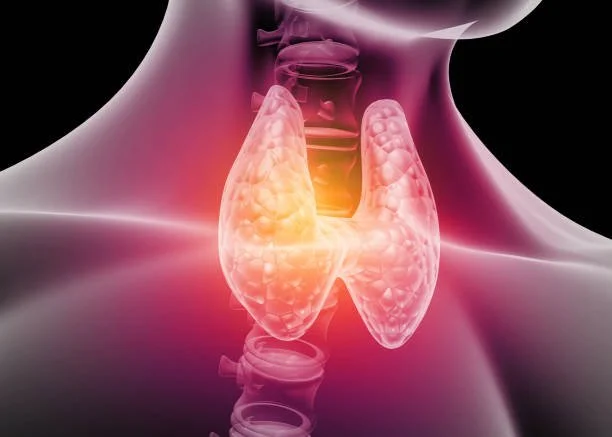World Health Day: Why Root-Cause Healing Matters More Than Ever
Celebrate World Health Day by exploring how functional medicine takes a root-cause approach to healing chronic conditions. Discover holistic strategies for energy, gut health, hormones, and more.
How Functional Medicine Supports Men’s Health: Energy, Hormones, Weight, and Heart Health
Discover how functional medicine helps men address root causes of fatigue, low testosterone, weight gain, and heart risk—offering personalized, long-term solutions for optimal health.
A Functional Medicine Approach to Women’s Health: Healing from the Inside Out
When it comes to women’s health, one-size-fits-all solutions often fall short. Hormonal shifts, stress, gut health, thyroid function, and environmental exposures all play interconnected roles in how women feel day to day. That’s where functional medicine comes in, offering a personalized, root-cause approach to healing that goes far beyond symptom management.
Reversing Type 2 Diabetes Naturally: Key Lifestyle Changes That Work
Type 2 diabetes has become a modern epidemic, but the good news is that it’s not just manageable—it’s reversible in many cases. Unlike conventional medicine, which often focuses on medication to control blood sugar, functional medicine takes a root-cause approach. By addressing nutrition, lifestyle, gut health, and metabolic function, you can restore balance to your body and potentially reverse diabetes naturally.
Healing Your Gut for Optimal Health: A Functional Medicine Approach
Your gut does more than just digest food—it’s the foundation of your overall health. From immune function to mental clarity, energy levels, and even heart health, your gut plays a critical role in keeping your body balanced.
But what happens when things go wrong? Bloating, acid reflux, food sensitivities, constipation, and fatigue are often signs that your gut is out of balance. More importantly, poor gut health can lead to chronic inflammation, autoimmune conditions, and metabolic disorders.
The good news?
How Stress & Poor Sleep Impact Your Heart
Most people understand that diet and exercise affect heart health, but stress and sleep are just as important. Chronic stress and poor sleep patterns can increase the risk of high blood pressure, heart disease, and inflammation. If you’ve ever felt your heart race after a stressful situation or experienced fatigue after a restless night, your body is signaling that something isn’t right.
Understanding how stress and sleep impact the heart can help you make healthier choices and reduce long-term risks.
The Truth About Cholesterol: Should You Really Be Worried?
For decades, cholesterol has been labeled the enemy of heart health, with warnings about avoiding high-cholesterol foods and taking medication to lower it. But research shows that cholesterol is far more complex than just “good” and “bad.”
In reality, cholesterol is essential for life, and blindly lowering it without addressing the real causes of heart disease may do more harm than good.
Understanding the Root Causes of Heart Disease: A Functional Medicine Perspective
For decades, conventional medicine has pointed to high cholesterol as the primary culprit behind heart disease. But emerging research—and what we see in functional medicine—tells a more complex story. Heart disease is not just a cholesterol problem; it’s an inflammation, metabolic, and lifestyle problem.
If you or a loved one are concerned about cardiovascular health, it’s time to shift the conversation from simply lowering cholesterol to addressing the root causes of heart disease.
Erectile Dysfunction and Coronary Artery Disease Connection
Have you heard the expression "a canary in a coal mine?" Miners used to carry caged canaries while at work to detect carbon monoxide. The birds would die before the levels of gas became hazardous to miners. This signal became a fail-safe for the teams of men and women.
Our bodies have some fail-safe alarms, too. In fact, men have a warning signal that should never be ignored: erectile dysfunction (ED)
Dehydration and Cognitive Function
Most people, especially the elderly, simply do not drink enough water.
Facts to Know
Water makes up 60 to 70 percent of our body weight. But shockingly, up to 75 percent of Americans are chronically dehydrated—especially seniors.
Typical signs of dehydration include...
The Insulin and Cancer Connection
Growing research has shown that higher blood insulin can result in increased cancer risk.
Because insulin is a growth factor, high insulin levels trigger rapid cell division and can cause cells to lose control of their DNA regulator genes leading to increased potential for tumor progression and
Why Excitotoxins Are Harmful To Our Health
Excitotoxins are chemicals substances that overstimulate certain type of cells in the brain, all of the nervous system and many other organs.
In high and excessive amounts these cells become damaged and may die.
The underlying mechanism of excitotoxins has been attributed to the following diseases...




















